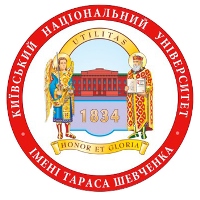LINGUAL FOLKLORE STUDIES OF “BEIRUT STORIES” BY AGATANGEL KRYMSKYI
DOI:
https://doi.org/10.17721/folia.philologica/2023/5/5Keywords:
Agatangel Krymskyi, “Beirut Stories”, Lingual Folklore Studies, Arabic Folklore, Idiostyle, Oriental StudiesAbstract
The development of a relatively new branch of philological science – lingual folklore studies – requires modern scientists to rethink the scientific and literary heritage of outstanding figures of Ukrainian culture. In particular, Agathangel Krymskyi’s literary works, especially his orientalist compositions, produce a vast area for new scientific research due to the multifaceted nature and uniqueness of the author’s personality. The purpose of the given research is to study Agathangel Krymskyi’s “Beirut Stories” through the prism of lingual folklore studies and the reflection of these studies’ trends in the idiostyle of an orientalist, as well as to outline the writer's contribution to the development of the foundations of lingual folklore studies as a branch of modern philological science. Descriptive, structural, comparative, historical and typological scientific methods were used to realise the set purpose. This article’s scientific novelty lies in attempt to change the viewpoint under which the researchers of Agatangel Krymskyi’s heritage regarded his personality. The contemporaries and followers considered the ethnographic works of the scientist as field studies rather than deep comparative linguistic analysis of two mentalities and cultures. This article analyzes the artist's literary work through the prism of lingual folklore studies, outlines the influence of the abovementioned philological science on the style of Agatangel Krymskyi, as it reinterprets the course of the national literary process and the development of domestic science at the end of the 19th and the beginning of the 20th centuries. The results of the research allow us to assert that Agatangel Krymskyi formulated the basic principles of modern linguistic science in his orientalist fiction since his scientific investigations about the life of the Arab people and Arab folklore are an invaluable source of lingual folklore knowledge.
References
Betsenko, T. P. (2015). Linhvofolklorystyka yak novyi napriam filolohichnoi nauky [Lingual Folklore Studies as a New Trend in Philology]. Mythology and Folklore, 3–4, 108–117 [in Ukrainian].
Krymskyi, A. Yu. (2016). Vyryvky z memuariv odnoho staroho hrikhovody: Vybrane [Excerpts from an Old Sinner’s Memoirs: Selected]. Kyiv: “Academia” Publishing Center [in Ukrainian].
Krymskyi, A. Yu. (1972). Works in Five Volumes. Vol. 1 – Poetries. Stories. Kyiv: Naukova Dumka [in Ukrainian].
Krymskyi, A. Yu. (1973). Works in Five Volumes. Vol. 5. Book 1. Letters (1890–1917). Kyiv: Naukova Dumka [in Ukrainian].
Pavlychko, S. D. (2000). Natsionalizm. Seksualizm. Oriientalizm. Skladnyi svit Ahatanhela Krymskoho [Nationalism. Sexualism. Orientalism. The Complex World of Agatangel Krymskyi]. Kyiv: Solomiia Pavlychko’s Publishing House [in Ukrainian].
Solohub, N. M. (2001). Poniattia “indyvidualnyi styl pysmennyka” v konteksti suchasnoi linhvistyky [The Notion of “Individual Style of the Writer” in the Context of Modern Linguistic Studies]. Naukovyivisnyk Chernivetskoho universytetu – Scientific Bulletin of Chernivtsi University, 117–188. “Slavic Philology”, 34–38 [in Ukrainian].
Kovaliv, Yu. I. (Eds.). (2007). Encyclopedia of Literary Studies in Two Volumes. Kyiv: “Academia” Publishing Center, Vol 2. [in Ukrainian].









